Currently airing on HBO via HBO Documentary Films, the feature-length documentary The Apollo explores the legendary Harlem theater’s ongoing importance as a historical landmark and touchstone of African-American culture.
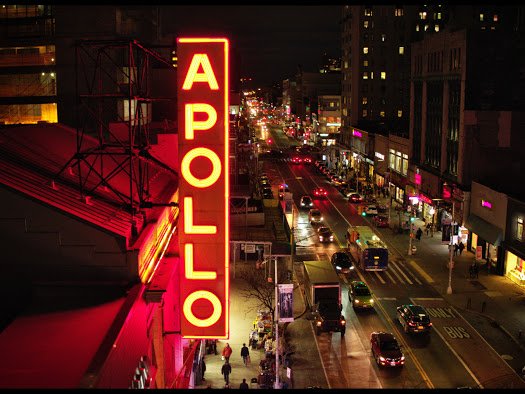
When producer Lisa Cortes contemplated a theater in her own neighborhood, one that has been an institution since 1913, she knew that a film about the significance of the location was inevitable. “We have this incredible legacy,” she realized about The Apollo theater. “Let’s find some filmmakers to help tell this story. That began six, seven years ago. A few years later, Roger Ross Williams came in as the director. I saw Roger at Sundance and he said, ‘I am just starting; you are in the music business and are in Harlem.’ We had been looking to do a project together.”
As Cortes went to The Apollo as a child and grew up partially in Harlem, now living there full-time, she had a special connection to the subject of her film, one that extended to her profession. “Before becoming a filmmaker, I was part of the original team at Def Jam Records,” she stated. “The Apollo was one of the first venues that welcomed hip-hop artists and provided this legitimate platform to perform on. I was at those performances in the mid-to-late-1980s.”
Though hip-hop music and culture are powerful forces at present, in the 1980s, there was push-back on coverage of the artists, music, clothing, and language. “Oftentimes, we forget about the origins story,” Cortes recalled. “Mainstream media—whether it was television, radio or advertising—did not welcome hip-hop messages. The Apollo was one of the first venues to welcome the artists; Mary Flowers was instrumental in booking and supporting hip-hop at The Apollo.”
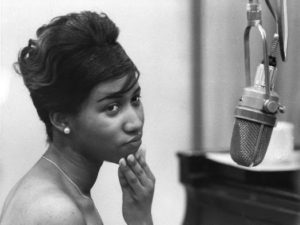
Photo Credit: Donaldson Collection/Michael Ochs Archives/ Getty Images / Courtesy of HBO
To acquire the rich materials required by the producers, spanning almost all of the 20th century in addition to the past 20 years, The Apollo enlisted an archival producer, Amy Dax, and had the cooperation of the theater itself which made an appeal for archival material to those familiar with times past. “We looked at this very fragile material,” stated Cortes of materials which came in many types of video formats in addition to those photographic. “Our editors Jean Tsien and John Fisher were continuously asking for different moments—we kept casting the net out. We found photographers whose work hadn’t been seen before.”
Encompassing some 85 years of African American history, considering several theater closures, The Apollo showcases the tumultuous experience in every important period in The Apollo’s tenure. “There are gaps in the African American archives due to the condition of being black in America,” Cortes said.
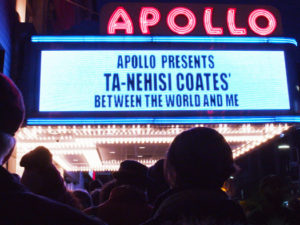
While many in the African American community refer to The Apollo as a symbolic church, for Cortes, she prefers to regard the theater as a sanctuary. “Patti LaBelle talks about facing tremendous discrimination on the road,” Cortes noted. “What it meant [for LaBelle] to come to ‘the church’ where she would be seen as a complete artist—The Apollo goes beyond a destination for performance; it’s also a place of conversation for the community. It’s a place for convening.”
In one striking section of the documentary, theatrical producer Kamilah Forbes uses the stage at The Apollo to adapt author Ta-Nehisi Coates’ book Between the World and Me into a live reading. “Roger said, ‘We’re there,’” said Cortes of her director. “We see Ta-Nehisi as our contemporary [James] Baldwin. This was a film about politics and race and the role that The Apollo has played in these conversations and these moments. The connection of what Ta-Nehisi is talking about right now has been the part of our collective past.“
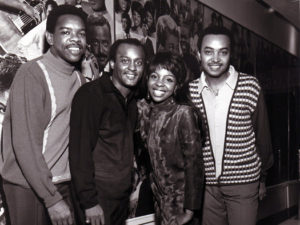
To illustrate the plight of African Americans with regards to the Civil Rights movement and its troubled aftermath, The Apollo includes footage of race riots, the presence of Malcolm X, and other realities, even including 21st century events. “It allows us to connect what was happening at the theater and African American history,” Cortes explained. “We wanted to make history present. Our stories are cyclical but are continuously evolving. It was the intention of the director—he didn’t want this to be past tense.”
Rather than becoming a nostalgia piece, The Apollo demonstrates why the theater continues to be relevant, developing and curating new voices. “I don’t want this to be stuck in the past,” said Cortes of the film and its viewership. “Some things have not changed at all. These are important conversations that The Apollo has afforded: Billie Holliday in the late-1930s; James Brown’s ‘I’m Black, and I’m Proud.’ Part of the same constellation of ideas and challenges and reckoning.”
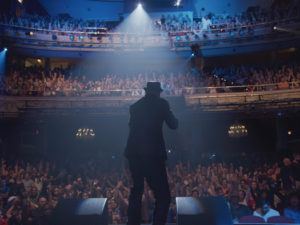
Photo Credit: Courtesy of HBO
For the uninitiated, Cortes hopes that her film can be seen as a cultural hallmark. “It’s a film that is about a living history and how African Americans have used artistry to lift ourselves out of oppression,” she revealed. “It has incredible interviews, performances, and a rich soundtrack, but it’s connected to a bigger story: the role that art plays, the responsibility of art, and the way that art has been used with overt and covert ideas to educate.”
Lisa Cortes next film project is The Remix: Hip Hop X Fashion which closed the most recent Tribeca Film Festival.





